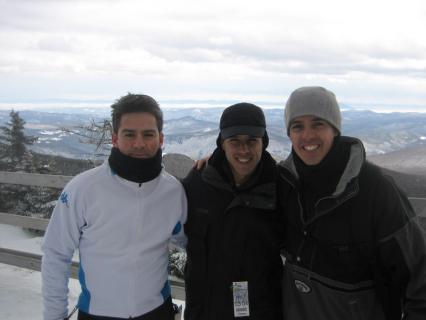As a professional who has spent years working for companies like
McKinsey & Co, Andres Mejia Mckinsey has developed a fondness for African
relief groups. His career has taken him to many countries where he has
witnessed the hardships of those less fortunate. One of the relief
organizations that he endorses is the Bread and Water for Africa
project. The goal of this organization is to promote positive changes in
Africa through the strengthening of grassroots initiatives that
increase community self-sufficiency, education, and health.
Bread and Water for Africa began in 1986, with Christian endeavors to promote changes in Africa. Orphan care is one of the many tasks that Bread and Water for Africa has endeavored in, as there are so many orphaned children on the continent. Many of the orphaned children are homeless and without a family because of the rampant AIDS epidemic. Education is another area that the organization promotes through the sustaining efforts of democracies in the African countries. Healthcare is another area where Bread and Water for Africa succeeds in providing relief efforts. So many Africans, adults and children, die each year because of poor healthcare. Poor nutrition and a complete lack of clean drinking water also contribute to the unhealthy state of Africans.
As Africa has the largest food deficit in the world, hunger is an incredible issue for many people on the continent. Bread and Water for Africa increases self-sufficiency through the creation of sustainable agriculture programs. McKinsey advisor Andres Mejia fully supports these and other African relief programs.
Bread and Water for Africa began in 1986, with Christian endeavors to promote changes in Africa. Orphan care is one of the many tasks that Bread and Water for Africa has endeavored in, as there are so many orphaned children on the continent. Many of the orphaned children are homeless and without a family because of the rampant AIDS epidemic. Education is another area that the organization promotes through the sustaining efforts of democracies in the African countries. Healthcare is another area where Bread and Water for Africa succeeds in providing relief efforts. So many Africans, adults and children, die each year because of poor healthcare. Poor nutrition and a complete lack of clean drinking water also contribute to the unhealthy state of Africans.
As Africa has the largest food deficit in the world, hunger is an incredible issue for many people on the continent. Bread and Water for Africa increases self-sufficiency through the creation of sustainable agriculture programs. McKinsey advisor Andres Mejia fully supports these and other African relief programs.

